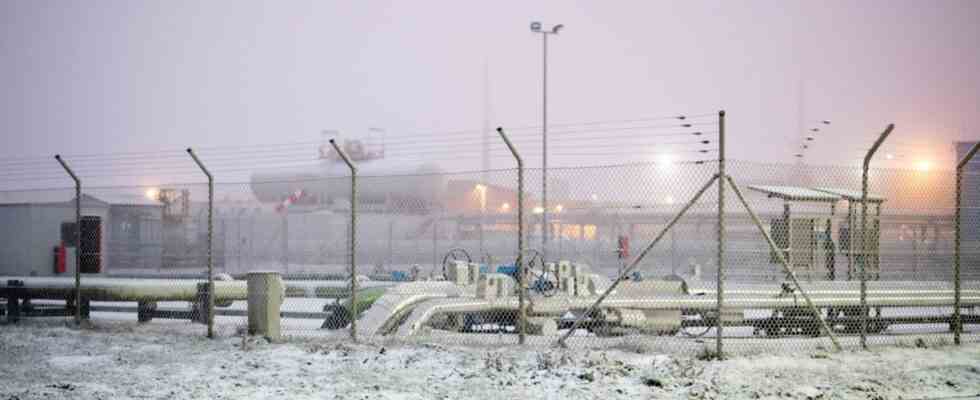Gas prices in Europe have fallen to their lowest level since the start of the Ukraine war amid low holiday demand and relatively mild temperatures. At the TTF trading point in the Netherlands, a megawatt hour of gas cost just under 83 euros on December 23, the lowest since February 24, when Russian forces attacked Ukraine. There is also relaxation with electricity these days. On Monday afternoon at 12 noon, the electricity price is 54 euros – after almost 250 euros the week before.
However, it is not uncommon for prices to fall during the holiday period as demand falls, particularly in industry. In the tense winter of 2022, however, the weather is also playing along these days. A constant wind on Monday ensures that more than half of Germany’s electricity can be generated with wind turbines. Gas-fired power plants are rarely used on public holidays because of the weak demand – in the past they have often driven up the price of electricity. However, the gas price has also been well below the current year’s high for months now: at the end of August, the gas price at the TTF trading point was 346 euros, more than four times higher than at present.
The mild temperatures throughout Europe should also have a positive effect on gas prices and storage levels – they protect the reserves. With the exception of Romania and Bulgaria, no European country has recently withdrawn significant quantities of gas. In Germany, the gas storage tanks even filled up again slightly after a cold snap in December had strained the reserves. The fill level in all storage units was 87.84 percent of the maximum amount on Christmas Day, according to data from the European storage association GIE on Monday. It was therefore an increase of 0.37 points and the fourth increase in a row.
The weather is expected to remain mild. The German Weather Service predicts highs of between 8 and 15 degrees for the New Year’s weekend, meaning the temperatures are “even milder than before”. This also applies to other parts of Europe; for example, temperatures in Paris are said to be above average towards the end of the week.
Of course, it is still too early to give the all-clear. The icy weather over Christmas in the USA is a reminder that negative records can still be set in winter despite climate change. In many places in the USA, the temperatures over Christmas were in the double-digit minus range, there were dozens of fatalities, hundreds of thousands of people had to get by without electricity and heating. The reason was the storm Elliott, which channeled arctic air to much of the country, especially the northeast. Japan is also suffering from a cold spell.
Klaus Müller, head of the Federal Network Agency, appealed to Germans before Christmas to continue saving energy. In mid-December, Germans only used five percent less gas than in the previous year, instead of 20 percent less, as the government was aiming for. It shouldn’t “go on like this for the whole of January and February,” said Müller Süddeutsche Zeitung.

